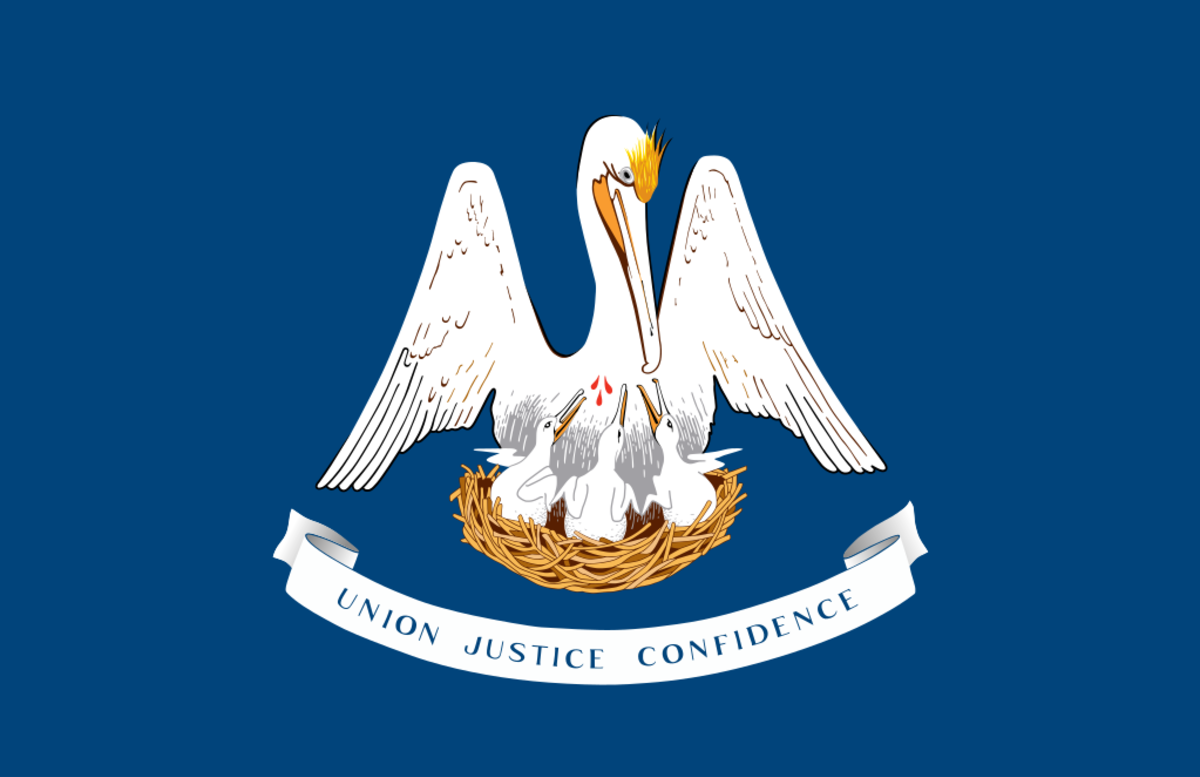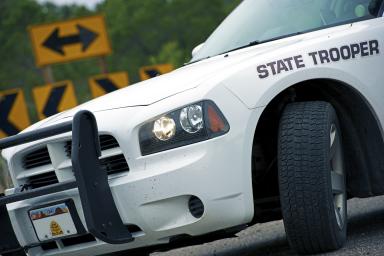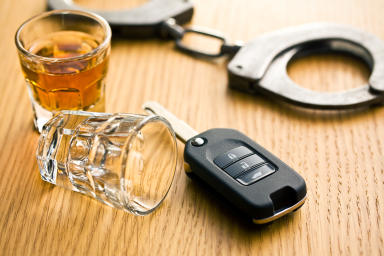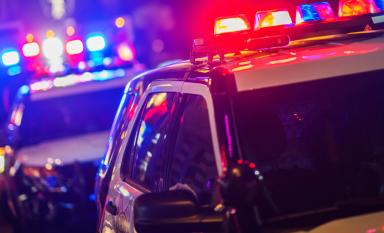Louisiana DUI Laws

Drunk driving is a severe problem in the United States. This is notably true in Louisiana, where the death rate per 100,000 people is greater than the national average, based on data from the Centers for Disease Control and Prevention. According to Louisiana State University's 2021 Traffic Records Data Report, alcohol was involved in 6.5% of the 46,712 injury crashes. In the same year, there were 972 fatalities, with alcohol being responsible for 41.6% of them. This indicated an increase in collisions and fatalities when compared to data from 2020.
The average cost of 2021 crashes in Louisiana was $9.62 billion, rising to $31.21 billion when loss of quality of life is factored in. These figures demonstrate how devastating crashes can be for residents of the state. Due to these concerning facts, the Louisiana Highway Safety Commission has been tasked with running anti-impaired driving campaigns. It also helps law enforcement agencies with sobriety checkpoints and saturation patrols.
This article will provide information on various DUI laws present in Louisiana, including the statute of limitations, statutes specifically for people under the age of 21, and damages plaintiffs may receive when they file claims. It will also detail the penalties drunk drivers may face after being charged with DUI, such as jail time, fines, and probation. Moreover, this article will tackle ways in which one can remove DUI from their records through expungement.
General DUI Laws in Louisiana
In Louisiana, it is against the law to drive a vehicle while intoxicated. While driving while intoxicated (DWI) and driving under the influence (DUI) are terms that can be used interchangeably, the legal definition used in the state is operating while intoxicated (OWI). The state’s particular law covers not just cars but also watercraft, aircraft, vessels, and other modes of transportation.
A person can be charged with OWI if any of the conditions listed below apply:
The driver is under the influence of alcoholic drinks
The driver has a blood alcohol concentration of 0.08 or more
The driver is under the influence of dangerous substances listed in RS 40:964 of the Louisiana State Legislature, including hallucinogenics, opiates, stimulants, and narcotics
The driver is under the influence of both alcohol and drugs that can be obtained legally with or without a prescription
Furthermore, if you were convicted of third-degree feticide, vehicular homicide, vehicular negligent injuring, or first-degree vehicular injuring within the past 10 years, this case will be considered a prior conviction and will factor into the penalties of your current DUI case, even if it is your first time being charged with DUI.
Exemption for Cyclists and Equitestrians
Bicycles and horses are not considered motor vehicles in the state because they are not propelled by electricity. The term “motor vehicle” also excludes electric-assisted and powered bicycles. As a result, a cyclist or an equestrian cannot be charged with DUI in Louisiana.
Despite this, a drunk driver of a non-motorized vehicle can still be charged with public intoxication. This offense can be committed if a cyclist operates their bicycle while drunk and causes a disturbance. However, if the rider was involuntarily intoxicated (i.e., forced to drink alcohol), then they would be exempt from criminal responsibility.
Underage DUI Laws in Louisiana
According to a 2021 study conducted by the Louisiana Transportation Research Center, young drivers (aged 15–24) continue to be overrepresented in crash statistics across the state. The concerning results of this study highlight how underage driving accidents have been a long-standing issue in Louisiana. As a result, teenagers and young adults are seen as high-risk drivers. Alcohol is one of the key contributors to this risk.
Underage DUI in Louisiana is an offense committed by intoxicated drivers under 21. For this particular crime, the BAC limit is 0.02, which is relatively stricter than the BAC for adult drivers.
Louisiana is one of the few states with exceptions to underage drinking laws. Minors may consume alcohol if they are on private premises and have parental permission. They can also legally drink alcohol for medicinal or religious purposes.
What Are the Penalties for a DUI in Louisiana?
A DWI conviction in Louisiana is based on the number of prior offenses an individual has had in the previous 10 years. The following is a list of possible penalties:
Penalties for Minors
For DWI charges involving underage drivers, some of the penalties are different from those for adults:
License Suspensions
If you are arrested for DUI in Louisiana, your license can be immediately suspended by the DMV. Still, this is not an automatic procedure, and you have 30 days from the date of your arrest to request an administrative hearing. If you fail to submit on time, you lose the right to request one.
The duration of your license suspension for a DUI offense is determined by how many times you have been convicted in the past decade. A first offense can result in a 90-day license suspension, while a one-year license suspension will be imposed for a second offense. A third offense results in a two-year license suspension.
Enhanced Penalties
Your penalties will automatically increase if you have a BAC of 0.15 or above. In addition, if you are convicted of child endangerment, you may receive an additional 10-day jail sentence for a first offense and a 30-day sentence for a second offense. A person who causes an accident that results in someone's death (vehicular manslaughter) will also face enhanced penalties, such as a fine of up to $15,000 and up to 30 years in prison.
Implied Consent Law in Louisiana
Louisiana has an implied consent law. When a person drives their car on public highways across the state, they consent by default to a blood, breath, or urine test to determine their BAC. These tests are performed by a law enforcement officer who has reasonable grounds to believe that the driver, regardless of age, is operating a vehicle while under the influence of alcohol or drugs.
While you may decline testing in Louisiana, you can face a variety of penalties if you do. These include criminal charges, fines of up to $1,000, and a jail sentence of up to six months.
What you can refuse without consequences, on the other hand, are the field sobriety tests such as the walk and turn test, the horizontal gaze nystagmus test, and the one-leg stand test. These procedures are not legally required by the state.
Louisiana Anti-Dram Shop Law
In most cases, the intoxicated driver is solely liable for damages and is sued by the victim for compensation. However, there are times when it is contested whether a third party is also to blame for the injuries caused by drunk driving. For example, suppose a person got drunk in a bar, drove their car, and crashed into you on their way home. One of your concerns might be whether you can also sue the business that served alcohol to the driver.
In scenarios like this, dram shop laws allow a person to seek compensation from third parties, such as bars and alcohol stores, in cases of OWI. Unfortunately, while most states (43 of them, to be exact) have dram shop regulations, Louisiana is among the seven states that do not. In truth, RS 9:2800.1 indicates that the consumption of alcohol, not the serving or providing of the drinks, is the proximate cause of any injury. This means that establishments with a liquor license are not liable for damages caused by an intoxicated driver.
Similar rules apply to social hosts (non-vendors of alcohol). If a drunk driver caused injuries after attending a social gathering, then the host would not be liable for damages incurred by the driver outside the premises. They could only be held liable if the injuries occurred on the premises.
On the other hand, a dram shop becomes liable if they serve a drunk minor who consequently causes harm on the road. Unless the minor has consent from their parents, the establishment can be held liable for damages the victim has suffered. Under all circumstances, it is illegal for a dram shop to serve alcohol to individuals under the legal drinking age.
A victim may also sue the server of alcohol if they pushed the driver to drink or lied about the beverage's alcohol content.
How Much Can Someone Sue for a Drunk Driving Injury in Louisiana?
In Louisiana, there are two main types of damages that DWI victims can claim in a civil case: economic and non-economic. Economic damages are quantifiable and include lost wages, medical expenses, and other miscellaneous expenses. Meanwhile, pain and suffering, loss of enjoyment of life, and mental distress are examples of non-economic damages.
In most situations, there is no cap on the compensation one can claim in a civil case. However, a limit of $500,000 is imposed if the case involves a government agency.
Punitive damages, meanwhile, are normally not awarded to plaintiffs in Louisiana. Fortunately, DWI is the exception to this rule. Specifically, punitive damages can be awarded when the defendant was not only intoxicated but also reckless or deliberate in their attempt to injure the victim.
Louisiana's Pure Comparative Negligence Rule
When it comes to collecting compensation for the parties concerned, Louisiana adopts the pure comparative negligence rule. This indicates that the plaintiff can receive damages regardless of the proportion of fault, whether it is 1% or 99%. However, the amount of compensation that can be sought will be lowered based on the degree of fault.
For example, it was proven that you were speeding when a drunk driver collided with your vehicle. The court determined the amount of damages to be $100,000; however, because you were speeding, you were found to be 30% to blame for the accident. As a result, you’d be able to claim only 70% of the total amount, or $70,000.
The Statute of Limitations in Louisiana
The statute of limitations for any civil case in Louisiana is one year. This includes personal injury and property damage actions caused by DUI. However, Louisiana follows a discovery rule, wherein the time limit does not start until the victim discovers the injury. There are various factors that can influence the statute for filing a case, such as:
The date on which the injury or harm occurred;
The date on which the judge reasonably expected the plaintiff to discover the injury or damage;
The date the plaintiff first became aware of the harm or damage.
The one-year filing period does not apply to victims under 18. This means that the time limit begins only when the plaintiff reaches the age of 18, giving them until their 19th birthday to initiate a case.
Expungement of DUI in Louisiana
Having a criminal record can impact many parts of one’s life, including their work prospects and how society perceives them. Luckily, Louisianians with prior criminal records possess the right to file a motion to have their convictions removed. This process is called expungement.
If your DUI is classified as a misdemeanor, you can file a motion for expungement if either of the following circumstances apply:
You must plead guilty or receive a guilty verdict. The judge then chooses to have your case set aside and the prosecution dismissed under Article 894 of the Louisiana Code of Criminal Procedure. After that, the judge will place you on probation.
More than five years must have passed since the completion of your sentence, and you must have no pending felony charges.
It is important to remember that the Article 894 plea can only be taken once in a decade.
If your DUI is classified as a felony, you can seek expungement for similar reasons as described above. Before you file, you should be aware of the following conditions:
The judge must have your case set aside and the prosecution dismissed under Article 893, not Article 894.
Instead of a five-year waiting period, 10 years must have elapsed since the completion of your sentence. Furthermore, you must not have been convicted of any other criminal offense or have any pending criminal charges within that period.
Resources for OWI Defendants and Folks Injured by an Impaired Driver in Louisiana
Louisiana State Bar Association
LSBA provides access to a variety of services to help clients with their legal concerns. It features membership directories where users can search for attorneys by location and practice area. It has also established the Judges and Lawyers Assistance Program, which assists judges, lawyers, law students, and their families in dealing with mental health issues such as drug and alcohol abuse. In addition, the website has a glossary of legal terms and procedures to help people understand the jargon used in their cases. Moreover, LSBA offers pro bono services to make justice more accessible to Louisianians.
Law Library of Louisiana
The Law Library of Louisiana maintains a website with a wealth of materials for self-represented litigants. Referrals to services around the state, research guides, library brochures, and other materials can help people understand what occurs when they appear in court. It includes a guide on how to expunge a criminal record for people who have been convicted of DWI. For further information, contact the office through email at svpic@lasc.org or by phone at (800) 820-3038.
LouisianaLawHelp.org
Funded by the Louisiana Bar Foundation and maintained by the employees at Lagniappe Law Lab, LouisianaLawHelp.org is a website that provides guides and tools for low-income residents in the state. It tackles different legal topics, including civil and human rights, courts, and traffic. For people with driver-related violations like DWI, it has resources on how to reinstate a driver's license following a suspension and how to apply for provisional and hardship driver's licenses. The website also provides information on legal aid programs from a variety of organizations, which is searchable by parish and program name.
Expertise.com StaffAuthor
Step into the world of Expertise.com, your go-to hub for credible insights. We don't take accuracy lightly around here. Our squad of expert reviewers, each a maestro in their field, has given the green light to every single article you'll find. From rigorous fact-checking to meticulous evaluations of service providers, we've got it all covered. So feel free to dive in and explore. The information you'll uncover has been stamped with the seal of approval by our top-notch experts.




